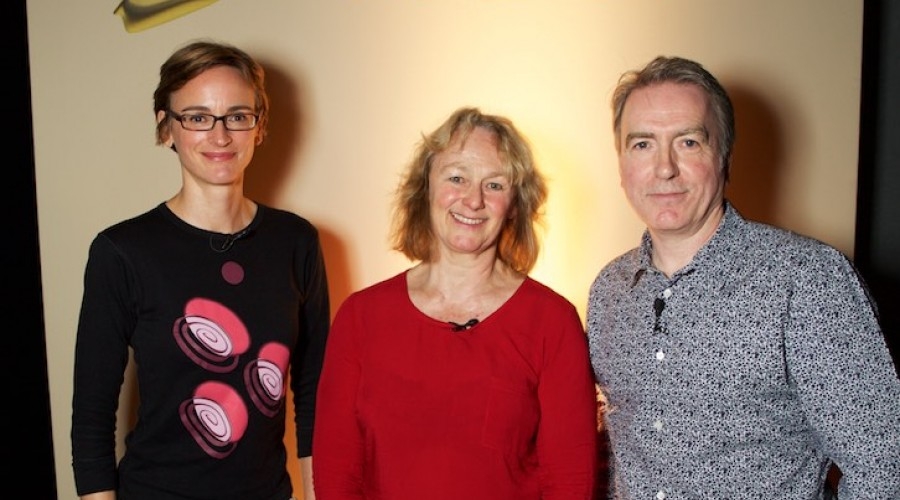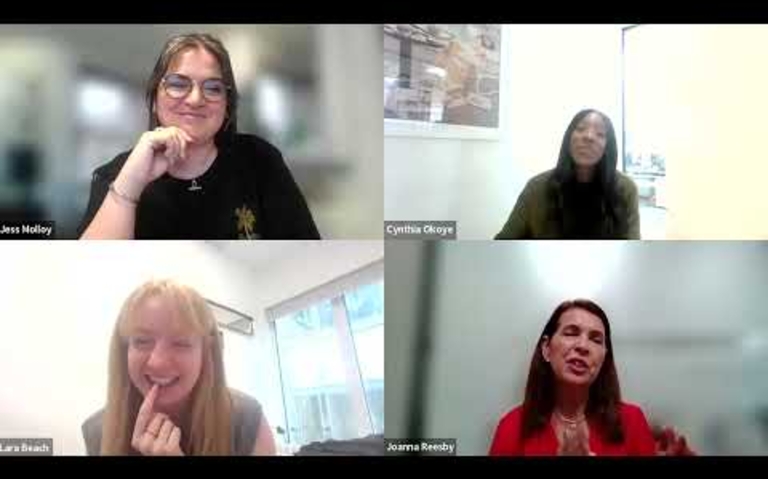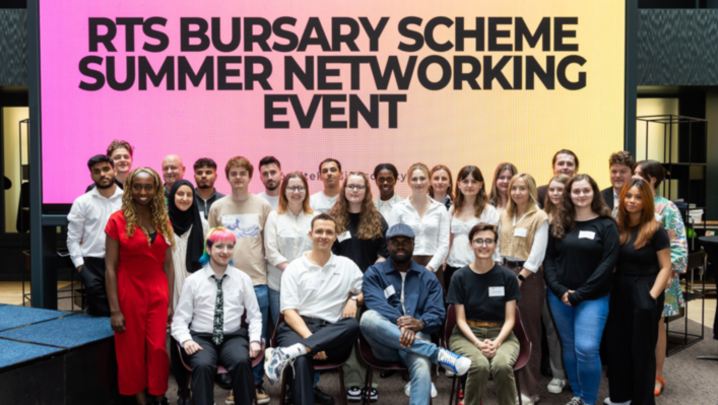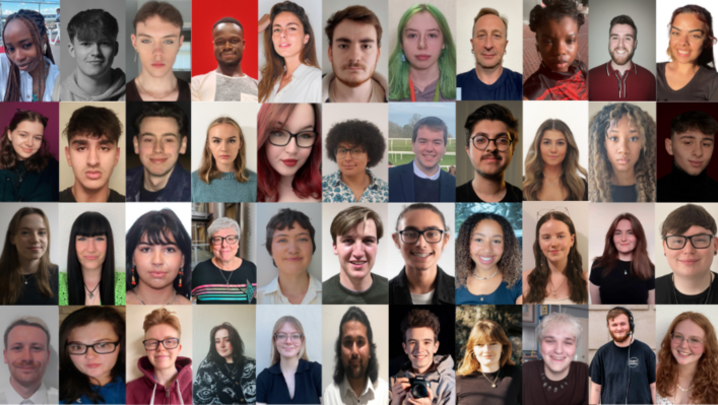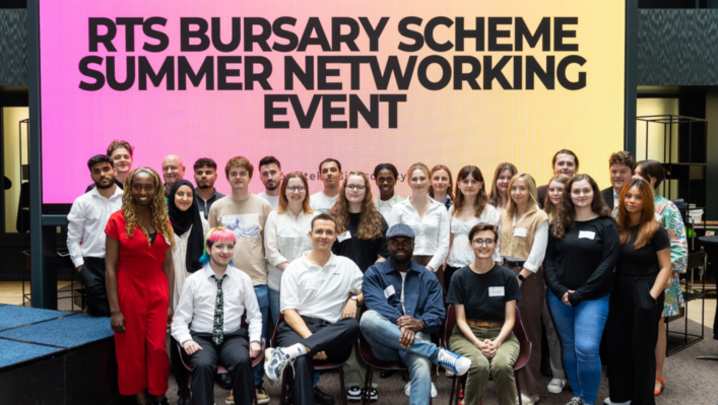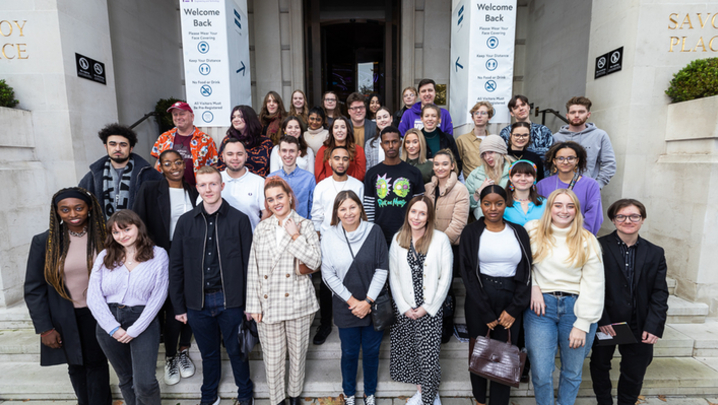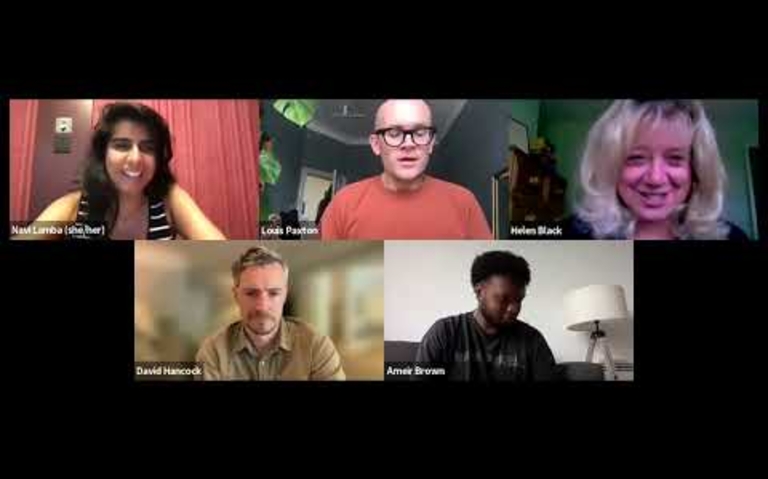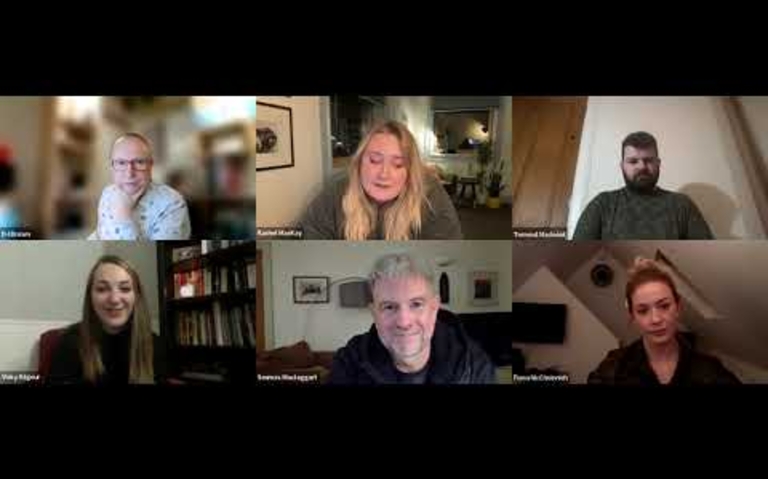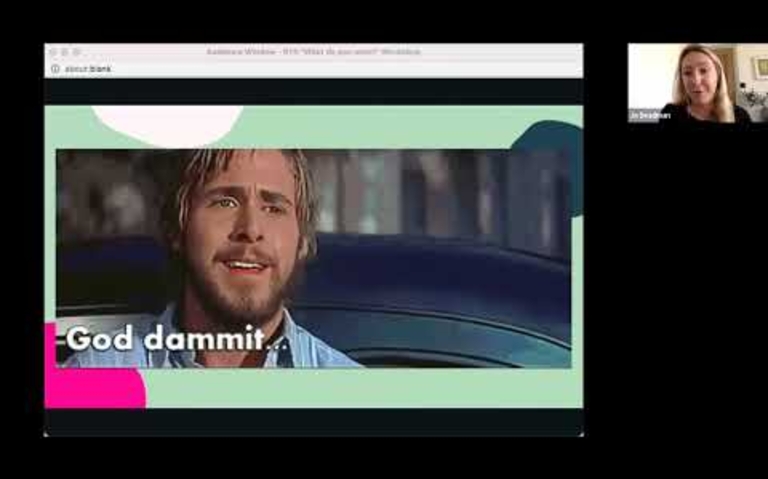Crickmay, whose work ranges from Arena to the forthcoming BBC Two’s Inside Harley Street, said it was “storytelling. I can't really give it any other description than that. I get the rushes and try and tell a story with it.”
McLelland, who has cut dramas such as Line of Duty and is due to work on the forthcoming series of Sherlock, explained that “the craft of editing is peculiar to film”. While other art forms have lighting or acting, “the film doesn't exist” until the “edited fragments” are brought to life. “That's the craft, I think.”
Both editors ran through how they work and the different ways of assembling programmes.
Because she usually works in documentaries, Crickmay said that “one of the exciting things... is often you are finding stories. When I turn up on day one, mostly I don't know… what the story is.”
She explained that she spends “as long as possible” looking at rushes to find the story, but because of the nature of documentaries, she often does not know the story until late in filming or even the final day.
This was illustrated by a clip from a film she edited for Arena about Pete Doherty. The director had filmed with him for months, often just her and the singer. “The task was to find the story,” Crickmay outlined.
The chaos of the singer's life and his fans’ ardour led Crickmay towards focusing on his fans and addictions. She used devices such as his quotes illustrated on screen, which the director liked.
Scott asked her how difficult it was to mould hours of grainy material into a finished film.
“Once we had got this basic idea, you spent weeks just watching it, once we got the idea of fans and addiction… then it was easy,” she replied. That Crickmay had talked to the director from day one and was given the rushes as they were filmed, was a big help.
However, Crickmay said that because Arena Executive Producer Anthony Wall is “a great believer in the edit”, editors are given longer than on other shows. Usually she has around six weeks for a 60-minute documentary, but Arena allows “double that”.
While she was effectively left alone by the director to shape the Doherty Arena, by contrast, Crickmay said that on Inside Harley Street, Director Victoria Engle liked to work to a more prescriptive system that she calls “the Method”.
This involves portioning the edit into separate sections. For the first two weeks the interviews are pulled out, so there are “60 minutes in roughly the right order... then she leaves”.
Crickmay says she then has two weeks “to make it into a film... I put in actuality... all the things that make it look like a film. Then she comes back and she has a heart attack... then, it turns into more like a normal editing process, more like give and take.”
Both editors stressed the importance of good relationships with directors. Because they “trust you with their material”, often directors work with the same editors, said McLelland, as “they have that bond of trust”.
He compared the cutting room to “a confessional”, and noted that directors like the “intimacy” of the room.
McLelland said that, with Sherlock, he expected the director of the new series “will have his own take”. He added: “I think in other series [of Sherlock] it is very much director and editor working together.”
One of his clips, Canadian drama Rogue, demonstrated the influence editors can have. The opening scenes were shot as a linear sequence involving star Thandie Newton shooting someone, burning the body, then crying in the shower as she washed the blood off.
McLelland was asked to heighten the emotion as much as possible.
He therefore began the episode with the blood-stained water from the shower swirling down the plug-hole, interspersed it with flashbacks to the action.
“The linear version had nothing wrong with it, but somehow it lacked the emotional punch [the producers] wanted,” explained McLelland. He said that making it “more elliptical” focused on the “strongest, most emotional parts of it”.
Specialising in scripted shows, McLelland said his usual way of working was to get the previous day’s rushes and “spend the day assembling and doing the first cut on your own, using your own instinct and judgement”.
He illustrated the importance of ensuring nuances brought in by actors and writers are kept during assembly, with clips from Line of Duty, and a carefully crafted scene by writer Sally Wainwright inThe Wife of Bath, starring Julie Walters and Bill Nighy.
“It comes back to the ingredients the crew bring to you… the raw material... you cook the ingredients,” explained McLelland.
Sometimes, during assembly, there are conversations with the director, he said, and sometimes [the editors] can influence what happens during the next day's filming, if it is early in a shoot.
McLelland came into editing via a classics degree, followed by the “time-honoured knocking on doors, getting a job as a runner, hanging round in cutting rooms”, and people being generous with their time. He then joined BBC Scotland and Ealing Studios.
He told the audience it was important to remember that most editors “don't forget the people who did you favours”.
Crickmay entered the profession following a post-graduate course in television. She got a break doing some archive work on a Second World War programme. She had started assembling some footage “to save time” and was then given an editing role.
Key tips for the audience included advice on music. “Bring it in early... as soon as you put music on, something it looks good,” advised Crickmay.
However, she warned that “you have to decide if you are going to impose a mood”, as she did on a facelift scene in Inside Harley Street, “or you might want to leave it as open as possible”. She also warned that music copyright “is a minefield”. Scott said that big companies usually take out blanket contracts.
The editors were asked how they keep a fresh perspective when staring at problematic sequences. Crickmay gave a characteristically honest answer: “I go to the loo. I find that very, very helpful. I wish I smoked.”
The speakers at the Craft Skills Masterclass: Editing were: Joanna Crickmay, Editor; and Andrew McLelland, Editor.
The Craft Skills Editing Masterclass was an RTS afternoon event held at the BFI Southbank London Wednesday 25th November, 2014 produced by Helen Scott.

